What is Horizon

On the islands of Amami,
there is a belief that the gods live in an idealized homeland
that has bountiful harvests and lies just beyond the horizon.
People must have welcomed the yurimun (jetsam) that washed ashore from that land.
In 1995, we launched Horizon,
a magazine passionately dedicated to the Amami archipelago.
The word “horizon” can mean either the horizon as viewed from the land,
or the horizon as viewed from the water,
and we chose it for the latter meaning.
It was important to us to include the meaning
that Neriya-kanaya has in these southern islands surrounded by ocean.
The Amami archipelago consists of 8 small, inhabited islands
(Amami Oshima, Kakeromajima, Ukejima, Yorojima,
Kikaijima, Tokunoshima, Okinoerabujima and Yoronjima),
each with its own distinct history and culture.
The more you learn about the islands,
the more you realize you have much yet to learn.
Such knowledge could not be found outside the islands
when we first published the magazine,
envisioned as a loudspeaker that would broadcast all kinds of information
about the Amami archipelago in the spirit of island revival.
With the cooperation of the Amami Archipelago Tourism League
(later assimilated into the Amami Archipelago Tourism Products Association)
and business partnerships over a broad area,
Horizon magazine continued to publish in color on 24 A4-sized pages twice a year.
My husband Futoshi Hamada primarily handles the photography
and I work on planning, reporting and editing.
Horizon is a thin pamphlet
heavy with photographs and bite-size articles
that are easy to read and will spark an interest in Amami
in readers who don’t know very much about the archipelago.
But we were also convinced it had to be a sort of Amami 101 textbook
that was as close to the truth as we could get.
Leaning on the writing of people who researched Amami in different areas,
our staff fought hard and issued the magazine for 20 years.
Last published in 2014,
Horizon survives in eBook form to continue informing the public about all things Amami.
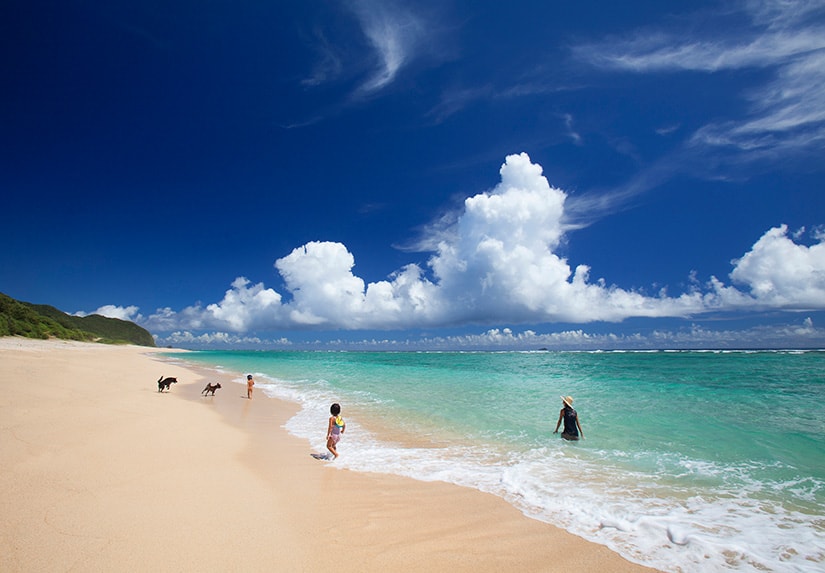
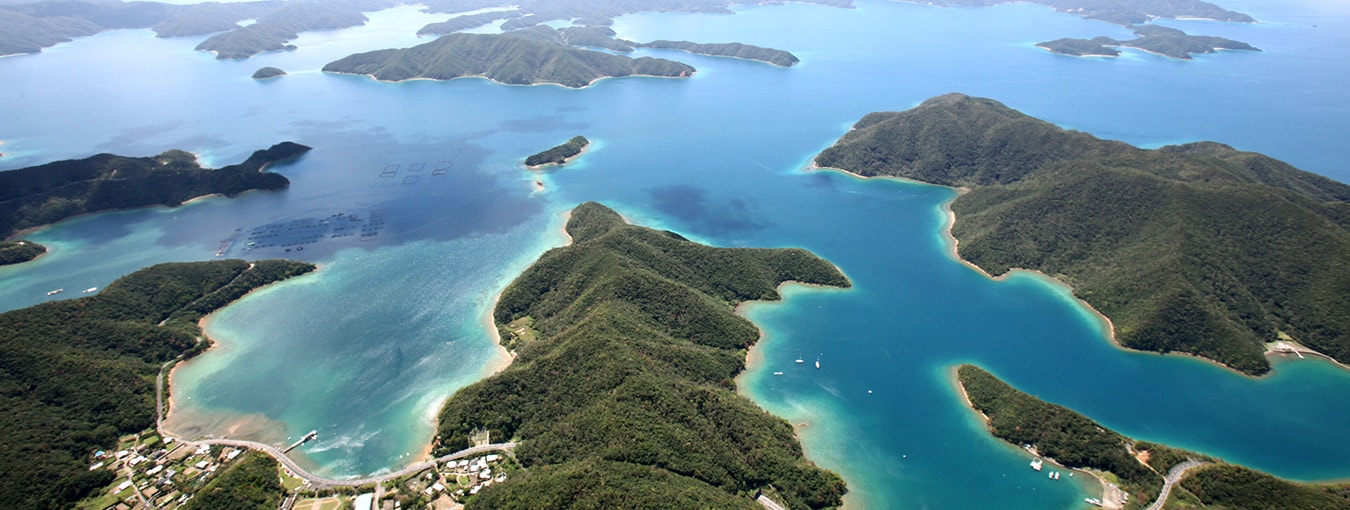
Then, New Zealand media theory researcher
Dr. Evangelia Papoutsaki visited the islands on an in-residence program of
the Kagoshima University Research Center for the Pacific Islands
to organize information released in Horizon
by category and advise the team on publishing
a globally accessible website with English translation.
One and a half years of work later,
we reached the first stage of completion.
As we did so, Amami Oshima, Tokunoshima Northern Okinawa
and Iriomotejima were designated for registration to the World Natural Heritage.
Just as an excited world starts to focus on Amami,
we are delighted to be able to finish the website.
Our deepest thanks to all those involved
who gave of their time and labor.
It is our sincere wish that the nature and culture of Amami
be made known to people all around the globe.
Stay tuned: the website will continue to develop and evolve going forward.
The staff and I hope you look forward to the release
of even more Amami knowledge still hidden from world view.
Editor-in-chief, Horizon magazineYuriko Hamada
Horizon Amami Islands “ecocultural magazine”
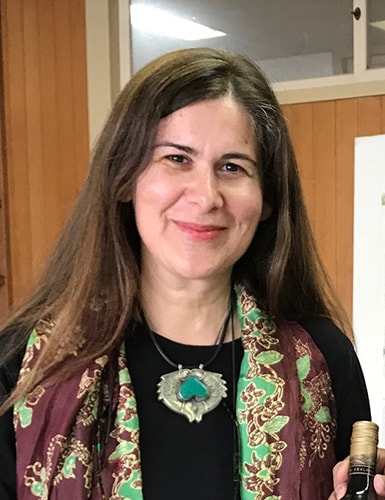
Dr Evangelia Papoutsaki
Co-Convenor Small Island Cultures Research Initiative (SICRI)
My initial encounter with HORIZON magazine and its editor came when I visited Amami Oshima for the first time in 2017 as an International Research Fellow at Kagoshima University’s Research Center for the Pacific Islands.
During my exploratory ethnographic research that sought to map the communicative ecology of the Amami islands, I worked with my Amamian research host, Professor Sueo Kuwahara to study the role of media in localized information flows unique to the islands and identify the key island communicative networks. As part of this research, we were keen to find representative examples of flows of communication and information unique to the context of this group of islands that included channels, resources, activities and island storytellers.
As part of our research fieldwork, we conducted interviews with Amamians who engaged in the islands’ communication networks. When I was introduced to Yuriko and Futoshi Hamada by Prof. Kuwahara, I felt an immediate connection. I sensed their passion for Amami and their commitment to serving their island communities. One of the manifestations of this passionate commitment has been the Horizon magazine, Amami’s only magazine representing all islands. We spent several hours and in different meetings going through this award-winning publication that contained such rich information about the islands culture and nature that I had not found in any other source online.
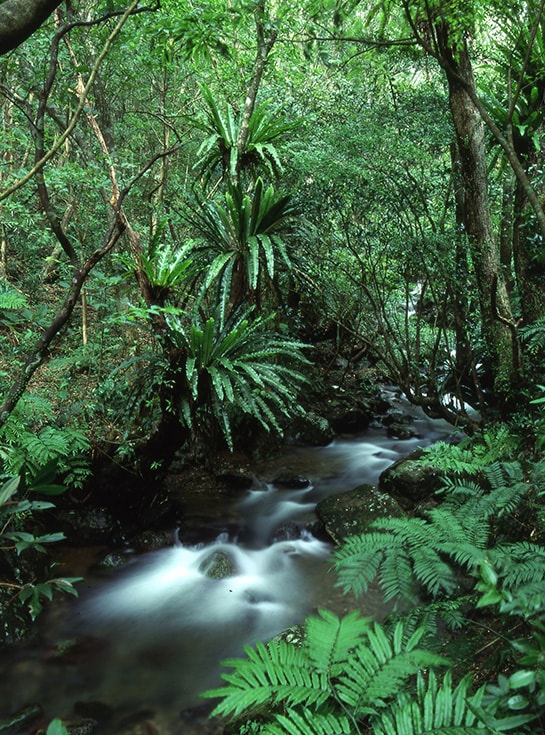
The eight islands that comprise Amami are each unique microcosms with distinctive dialects and ecocultural identities. I saw Horizon acting as a window into the local island cultures and nature targeting primarily visitors, although I could see that the magazine was making it possible for the islanders to see their islands through their eyes and also learn about the other islands outside their own. As Yuriko Hamada, the editor had mentioned to us, she wanted something produced locally of high quality that the people of the islands would be proud off and who wouldn’t be? The high quality and rich visual and textual content on historical and traditional cultural customs and practices but also contemporary creative expressions and events was illustrated by original photography taken by her spouse, Futoshi Hamada, award winning photographer.
What also stood out for us was the undeniable connection between nature and culture, the islands ecology was an extension of the islands culture and vice versa. In our multiple encounters with Futoshi Hamada, his passion for his islands natural environment was hard not to miss. It us his deep love for the islands’ nature and culture that has fueled this creative passion. He calls himself an Amami Islands photographer and ecologist, a Black Rabbit expert, and he carries this identity with a strong sense of responsibility. The Horizon magazine was partly the result because both him and his wife, the editor, recognized the importance of documenting the island’s ecocultural world that is in danger of being eroded by depopulation, an aging population and mainland popular culture influences. As researchers we recognized this magazine as a good example of an endogenous publication that its originally external audience focus can be seen as an effort to balance island representation from within. Although primarily produced for visitors to the islands acting as a window to their culture and nature from within, Horizon was also read by islanders who saw it as an affirmation of their identity.
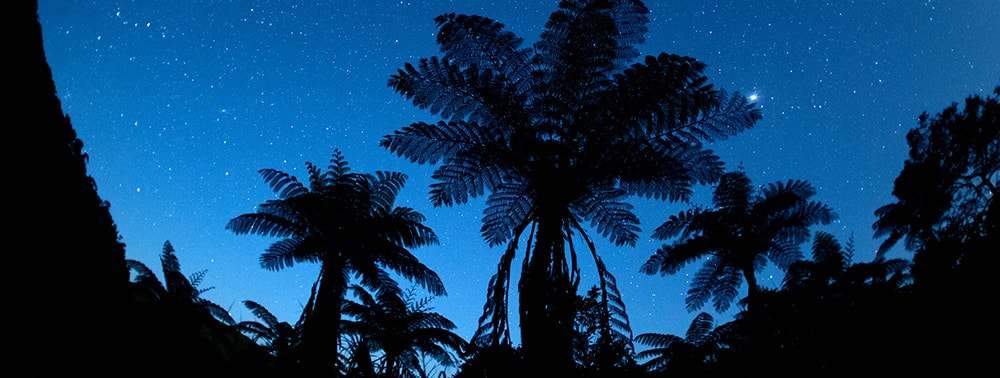
In operation since 1995, Horizon ceased to print in 2014 although past copies remain available online and in tourist spots and airports, a valuable ‘archive’ of easily accessible format and content. It saddened me that the magazine was no longer in print. I felt its content continued to be of relevance both as an information source to visitors but also as an accessible repository of the islands culture and nature. Given the almost total absence of information online about the islands in English and the imminent recognition by UNESCO as a designated Natural Heritage site that would attract international attention, I proposed selected content of the past issues are translated, updated, and published online. This gave birth to the HORIZON online magazine idea. I am indeed very proud to have played a role in bringing Amami islands and the original, informative and record keeping stories of Horizon magazine to the attention of an international audience. This will help the islands to become better known for their distinctive and rich eco-cultural landscape.
As a media and islands scholar, I understand not only the importance of island representation but also the dynamics involved in who is presented and by whom. As our research demonstrated, the list of storytelling agents and cultural enablers in the Amami islands is a rich one (1, 2, 3). The Hamada couple have a long-standing record in serving the islands communicative ecology and agency by generating island stories from within. Creating an online platform that hosts Horizon’s stories in English contributes to the islands agency to share their stories in their own voice. By retaining the authorship, the islands’ voice is strengthened.